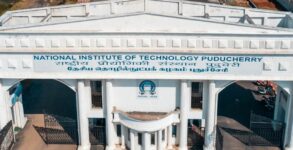National Eligibility cum Entrance Test (NEET) has become compulsory for Indian students to pursue medical and dental courses in India and abroad but still, there are still many options for students to pursue in case they do not clear the national-level competitive exam.
Here is a list of alternative paths to opt:
Bachelors of veterinary sciences & Animal Husbandry: The B.VSc courses focus on veterinary sciences – understanding diseases, and surgery for both domestic and wild animals. This course teaches diagnosis and treatment of animals, apart from prevention and correct medication measures to be taken for treatment. B.VSc and AH courses are of five-years’ durations with an internship programme.
Bachelors of Pharmacy (B.Pham): For a science stream student who does not want to pursue medical courses, then pharmacy courses are a bright option. There are two-year diploma and four-year degree courses available in the field.
The opportunities available to the students who has pursued B.Phama include working with hospitals and government institutions as an in-house pharmacist/chemist, working independently as a consultancy or having an own store, research for both private and government sector companies, and working with various multinational pharmaceutical companies like Glaxo Smith Kline (GSK), Cipla or Biocon.
Bachelors of sciences (B.Sc): The BSc programme can open doors to a variety of options. It offers specialisation in microbiology, biotechnology, nursing, genetics or even environmental science. The added bonus is that most reputed colleges offering B.Sc enrol students based on their class 12 marks.
Botony: It is a well-established branch of biology that involve the study of plants, their structure, processes, growth, etc. Those in the field of Botany conduct research and observation to discover new species, study the interaction of plants and different organisms in their environment, the genetic formation of plants, etc.
With a degree in Botany, a student can work in landscape industries, natural resources centres, environmental consultancies, or as a researcher, teacher/ professor, taxonomist, horticulturist, nursery manager, and environmental consultant.
Zoology: This exciting field involves the study of the animal kingdom. Zoologists analyse the structure, life processes, genetics, physiology, classifications and interaction of various species in detail by observing animals in their natural habitats as well as laboratories.
Microbiology: It is a study of the microscopic organism such as bacteria, fungi, viruses etc and their interaction with humans, animals, plants and other organisms in their environment. Microbiologists research and investigate how different microorganisms affect our lives. It consists of various subfield such as virology, bacteriology, parasitology, mycology etc.
Biochemistry: It is a branch of science that involves the study of chemical processes and substances which occur with living organisms. It is a laboratory-based science that brings together biology and chemistry, as chemistry. Examples of work include improving the process of photosynthesis to improve crop yield, discovering and development of new chemicals process to produce biofuel, etc.
Environmental science: Among one of the emerging career fields, environmental science involves the study of the chemical and biological components of the environment and their interactions. The course investigates environmental issues such as global warming, ozone depletion, waste management, water pollution, etc. and how these issues can be dealt with.
Genetics: The investing field involves the study of genes and their functions, genetic variations and heredity of living organisms. Professionals in the field of study genetic diseases, anomalies, traits, mutations, how genes are transmitted, interactions of their genes and their environment, etc. Geneticists can apply their knowledge to as diverse areas as treating patients with genetic anomalies, to developing pharmaceuticals products.
Bioinformatics: This field combines together biology, computer science, and information technology. Professionals in this field work on developing and using tools and techniques for analysing biological data. For example, a bioinformatics professional might develop software for accessing and analysing data from biomedical and pharmaceutical studies.
Physiology: It is the study of bodily functions, activities and mechanisms of living organisms, especially humans. Physiologists generally study a wide variety of topics including organs, anatomy, cells, biological compounds, and muscles, and how they interact and work together to keep the body functioning. In addition to studying human physiology, there are other branches of the field, including plant physiology, cellular physiology, microbial physiology etc.
Marine biology: It is the field of knowledge knowing involving the study of marine organisms, including their behaviour, and interactions with the environment. Another related career to this fishy sciences. The field of marine biology is quite diverse. And this title can be held by any professional closely involved with marine life and organisms.
Biotechnology: It is the field that combines biology and technology. It utilises living organisms such as cells and bacteria in the industrial process. Biotechnology professionals work in different areas to improve our life, including developing cleaner and safe fuels, improving crop yields, improving the production of food items, developing drugs to deal with deadly diseases etc.
Biophysics: This field combines the principle of physics with those of biology. Biophysicists study organisms at the cellular and molecular level using the methods and approaches of physics. It is advancing field, involving state-of-the-art technology, physical measurement and computational models.
Biomedical Science: It is an applied science that combines different aspects of different disciples to develop interventions, technology and knowledge in the domain of health care. Biomedical scientists work to study how cells, organs, processes function in the human body, and this, their work is applied to the understanding treatment of diseases.
Food and Agriculture: This is a wide domain consisting of various fields related to the understanding of biological and chemical processes that affect plants, dairy and the production of food. It includes field such as food science & technology, agronomy, horticulture, dairy technology, agriculture engineering, etc.
Allied medicines: If you are really keen in pursuing a medical career, yet do not wish to go down the challenging road of an M.BB.B.S, then the allied medicines domain could be the one for you. These include a wide range of careers such as physiotherapy, audiology. Occupational colleges and opportunities for each of these careers are very vast.


















